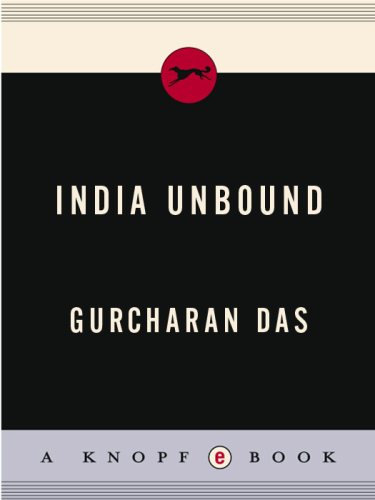
India Unbound
- اطلاعات
- نقد و بررسی
- دیدگاه کاربران
نقد و بررسی

February 1, 2001
Das, an Indian venture capitalist and columnist for the Times of India (and former CEO of Procter & Gamble India), uses his own experiences as a businessman as the context in which to comment on India's postcolonial economic policies. He begins with Nehru's mixed economy (which he argues achieved democracy but ignored entrepreneurship and competition, resulting in an absence of industrial development) and continues through to the economic reforms of 1991 under Prime Minister Narasimha Rao (whom he labels a "reluctant liberalizer"), demonstrating how India has abandoned state-directed industrialization and finally become a free-market democracy with a burgeoning middle class. He also points out how India's late (and incomplete) entry into the international economy continues to hamper its growth, as compared to other late entries, such as that of China, which had a lower per capita income than India did in the mid-'60s and today boasts one twice as large as India's. Nevertheless, Das remains optimistic that "the new India is increasingly one of competition and decentralization," particularly because of the Internet and the boom in software entrepreneurship. In explaining India's economic policies, he gives much credence to theories about high-caste Brahmins being averse to making money and the government's fears that capitalism would crush the poor; but Das only mentions in passing Russia's ideological sway at the time of India's independence and does not discuss the Cold War or the context for India's belief that import substitution was necessary to make India less dependent on the outside world for its survival. Business readers with an interest in Third World development will learn much from Das.

January 1, 2001
In 1991, four decades of Nehruvian socialism fell before the economic reforms of Indian Prime Minister Narasimha Rao. In the subsequent decade of India's deregulation, the national debt has decreased, the middle class has doubled in size, inflation has declined, and the restraints of industrial licensing have been abolished. Das, a former CEO of Proctor & Gamble and presently a business consultant and journalist, exudes an evangelical zeal for India's entry into the world economy. Arguing that India never experienced an industrial revolution, he asserts that because of its conceptual nature, the information age his country is now embracing is a superior fit with its caste system. Das also envisions India's economic growth as paralleling that of China, Japan, Korea, and Indonesia. Told with verve and excitement, Das's tale is loosely organized around a chronology of his life. He eschews mention of worker exploitation, environmental pollution, and new forms of corruption, but his story is an exciting, hopeful account that can be read by all with profit, as long as discretion is exercised.--John F. Riddick, Central Michigan Univ. Lib., Mt. Pleasant
Copyright 2001 Library Journal, LLC Used with permission.

January 1, 2001
The title does not refer to India's struggle to gain independence from Britain but to the "quiet revolution" that has India, which contains one sixth of the world's population, on the verge of becoming a great economic power. Das is a former CEO of Proctor and Gamble (India) and currently a columnist for the " Times of India" as well as a venture capitalist. Obviously, he casts a jaundiced eye upon India's socialist traditions. He views Nehru's post-independence policies of state-sponsored entrepreneurship as a massive failure that stifled creativity and delayed industrialization. Over the past two decades and particularly since the economic reforms of 1991, India has developed a dynamic free-market economy. While Das acknowledges the persistence of grinding rural and urban poverty, he points out that the vast expansion of the middle class in India is serving as both the beneficiary and the engine of even more promising economic development. This is a fascinating study of a social and economic transformation that will soon create important new realities in Asia and in the world economy.(Reprinted with permission of Booklist, copyright 2001, American Library Association.)




دیدگاه کاربران